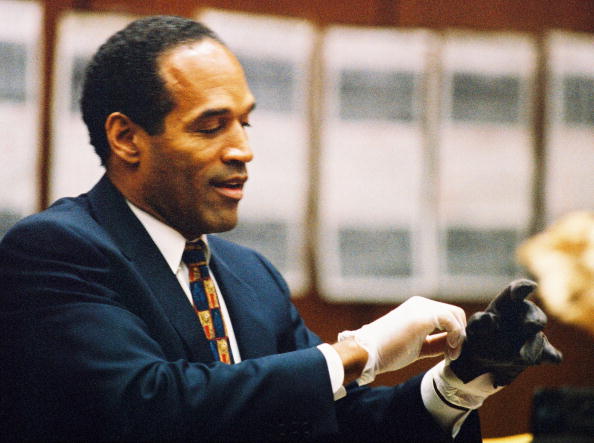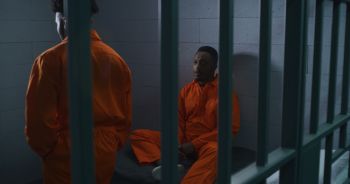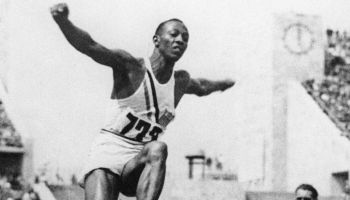LAGOS, Nigeria (AP) — Labor unions ended a crippling nationwide strike Monday in Nigeria after the country’s president partially restored subsidies that keep gasoline prices low, though it took soldiers deployed in the streets to stop demonstrations in Africa’s most populous nation.
SEE ALSO: How To Talk With Your Kids About Dr. King’s Death
Union leaders claimed a victory for labor, saying this would allow its leaders to guide the country’s policy on fuel subsidies in the future. But the newly agreed price of about $2.27 a gallon (60 cents a liter) is still more expensive than the previous price of $1.70 per gallon (45 cents per liter), putting additional economic strain on those living in a nation where most earn less than $2 a day and few see the rewards of being a major oil exporter.
And to force the compromise and stop popular protests, President Goodluck Jonathan ordered soldiers to take over security in the country’s major cities, something unseen since the nation abandoned military rule for an uneasy democracy in 1999. The move raises new questions about freedom of speech in a nation where government power still appears absolute.
“This is a clear case of intolerance and shutting of the democratic space against the people of Nigeria which must be condemned by all democracy-loving people around the world,” read a statement from the Save Nigeria Group, which has organized massive demonstrations in Lagos.
The six-day strike began after fuel prices more than doubled to at least $3.50 per gallon (94 cents per liter) following a Jan. 1 decision by Jonathan’s administration to end the government-sponsored subsidies. Low gasoline prices, something Nigeria has been accustomed to since 1973, remain one of the only benefits the average Nigerian sees from the nation producing 2.4 million barrels of crude oil a day. Gasoline also powers the small generators that provide shops and homes electricity in a nation with a failed national power grid.
Many protesters also joined the growing demonstrations to speak out against a culture of government corruption in a nation where lawmakers earn pay packages of $1 million a year and states have budgets larger than neighboring countries. Under the hash-tagged slogan of “Occupy Nigeria,” many used social media to criticize the nation’s poor roads and failing hospitals amid the excesses of the country’s elite.
The government tried to persuade the nation to its side, promising the estimated $8 billion saved a year by ending the subsidies would go toward needed public work projects. That failed to win popular support as tens of thousands joined in protests across the country.
In the last two days, government authorities began warning that provocateurs wanted to exploit the rallies to cause unrest in a nation with a long history of coups.
“It has become clear to government and all well-meaning Nigerians that other interests beyond the implementation of the deregulation policy have hijacked the protest. … These same interests seek to promote discord, anarchy and insecurity to the detriment of public peace,” President Jonathan said in a speech aired Monday morning on the state-run Nigerian Television Authority.
Jonathan gave no further explanation to his remarks. Opposition politicians did sometimes lead demonstrations, but they were not connected to the violence that killed at least 10 people and wounded more than 600 others during strikes.
The Nigeria Labor Congress and the Trade Union Congress told journalists on Monday they chose to abandon the strike “in order to save lives and in the interest of national survival.” They previously met with Jonathan late Sunday night, who made the same claims about security concerns.
“We are sure that no government or institution will take Nigerians for granted again,” said Abdulwaheed Omar, the president of the Nigeria Labor Congress.
That did not appear the case as soldiers and armored personnel carriers moved in overnight to occupy a park in Lagos where tens of thousands had gathered to protest. Soldiers also took over major highways and road junctions throughout Lagos, home to 15 million people, and in Kano, Nigeria’s second-largest city.
Labor organizers had urged workers to stay home on Monday after Jonathan’s appeal Sunday night. At the Lagos headquarters of the Nigeria Labor Congress, some 50 protesters gathered anyway. Lawyer Bamidele Aturu led the crowd in chants and cheers, comparing the president to military rulers of the past who used soldiers to suppress dissent.
“It’s very clear the revolution has begun!” Aturu shouted. However, those gathered looked warily at passing pickup trucks filled with soldiers.
The protesters began to march, passing soldiers who slung their assault rifles over their shoulders, allowing them to walk on. But as they drew closer to the surrounded Lagos park, around 20 soldiers arrived in two pickup trucks to cut them off, with bayonets affixed to their assault rifles. They told the protesters to go back and some of them began to turn around.
Soldiers fired into the air and tear gassed the crowd to disperse it, leaving protesters running through a stinging white cloud as gunshots echoed down the highway.
Meanwhile, authorities also targeted some foreign media outlets in Lagos. Officers of the State Security Service, Nigeria’s secret police, raided an office compound Monday used by the BBC and CNN, witnesses said. Marilyn Ogar, a secret police spokeswoman, said she had no information about the raid.
Though an oil workers association threatened to cut Nigeria’s crude oil production, they held off. Such a shutdown could have shaken oil futures, as Nigeria is the fifth-largest crude supplier to the U.S.
Meanwhile, an offshore rig being run for a Chevron Corp. subsidiary near Nigeria’s oil-rich southern delta caught fire and officials tried to account for all the workers there, the oil company said. Chevron spokesman Scott Walker said the fire started early Monday morning. Government officials blamed the fire on an industrial accident.
SEE ALSO:
Idris Elba, Octavia Spencer Win Golden Globes
















